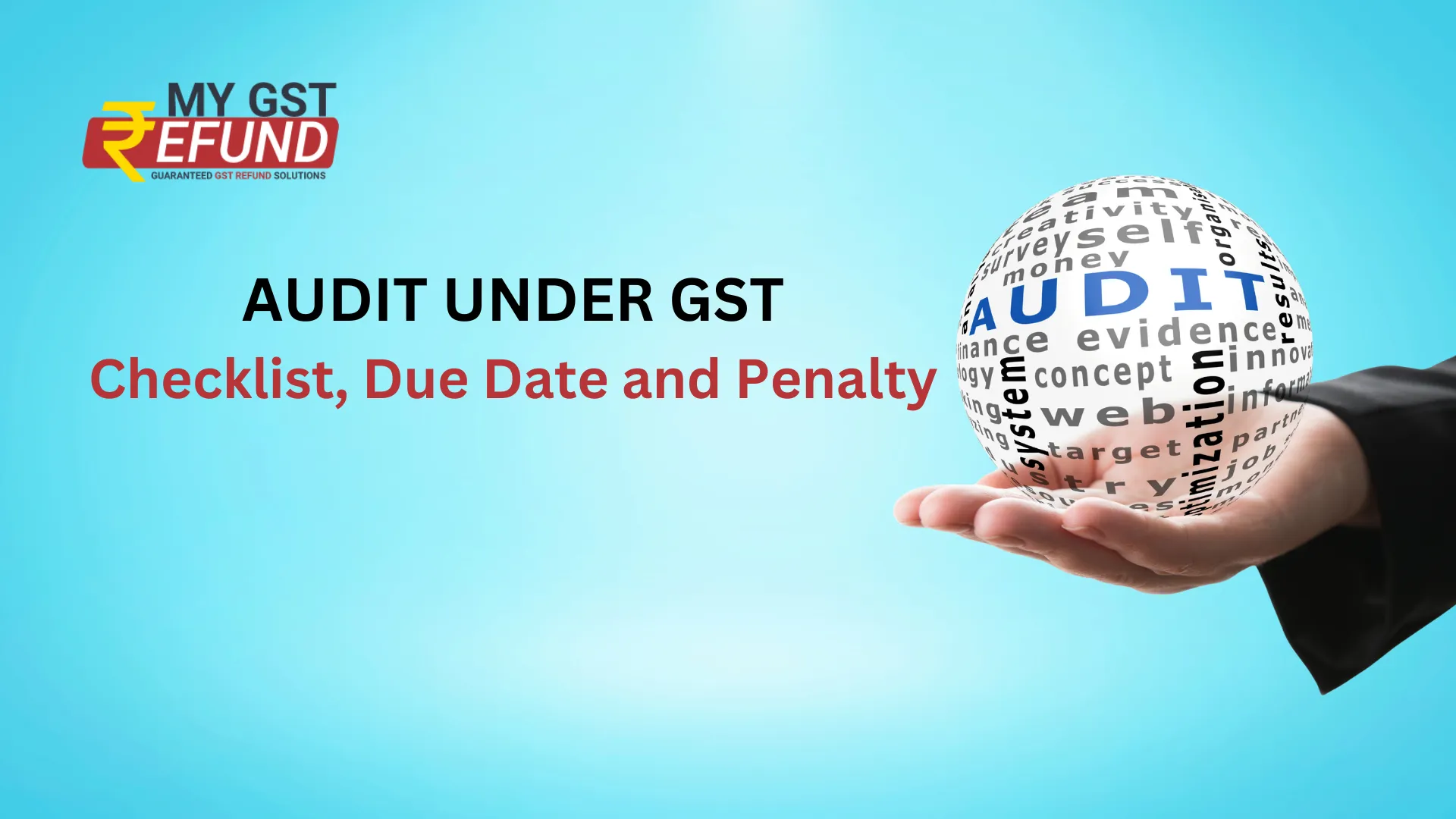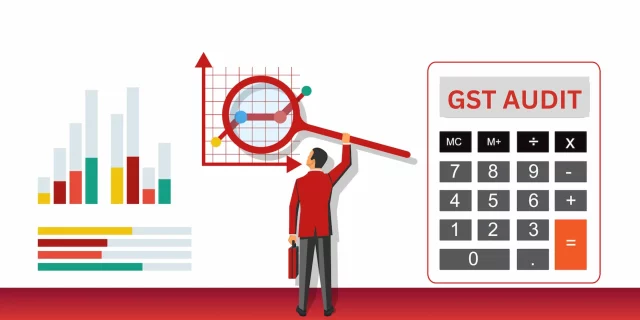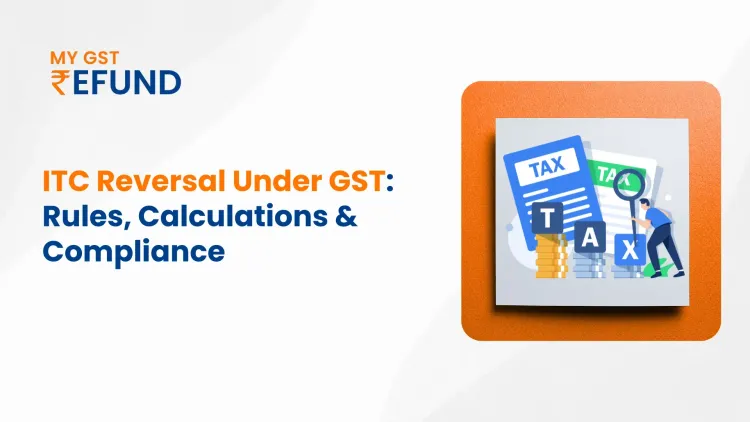Audit under GST: Checklist, Due Date and Penalty
Published on: Mon Jul 03 2023
AUDIT UNDER GST
Audit under GST is the process of verifying records, returns, and other associated documentation kept by GST-registered persons. The purpose of a GST audit is to verify the accuracy of the declared turnover, taxes paid, claimed refunds, and input tax credit (ITC), while also ensuring that all GST compliance requirements are met accurately. It requires that taxpayers analyze their GST tax burden, complete the required returns, and pay taxes in accordance with the GST audit checklist. The GST Act establishes a robust audit system to verify proper and accurate filing as well as taxpayer tax liability.
Applicability & turnover limit for GST audit for FY 2023-24

Section 35 of the CGST Act states that every registered person under GST whose aggregate turnover exceeds Rs. 5 (five) crore in a fiscal year is subject to GST audit. If the registered person’s turnover surpasses INR 5 crore in a fiscal year, then the registered person must file GSTR-9C along with a reconciliation statement duly certified in Form GSTR-9C. The turnover limit for mandatory GSTR 9 filing is Rs.2 crore, while the turnover limit for GSTR 9C is Rs.5 crore. The Central Board of Indirect Taxes and Customs (CBIC) has granted an exemption to GST-registered taxpayers with annual aggregate revenue of up to Rs.2 crore from the requirement of filing Form GSTR-9.
GSTR-9- GTR 9 is an annual return that GST-registered taxpayers must file each year. It contains information about outgoing and inward supplies made/received throughout the relevant fiscal year under various tax heads, such as CGST, SGST, IGST, and HSN codes. It is a compilation of all monthly/quarterly returns (GSTR-1, GSTR-2A/2B, GSTR-3B) filed in that year. The due date for filing GSTR-9 is 31st December of the next financial year.
GSTR-9C – GSTR-9C is a reconciliation statement that needs to be filed on an annual basis by taxpayers whose total turnover during a fiscal year surpasses five crore rupees. It must provide a self-certified copy of the audited annual accounts and a reconciliation statement in form GSTR-9C. Due date of filling GSTR- 9-Cs 31st December of the next financial year.
Turnover calculation for GST audit
To calculate the Aggregate Turnover:
Aggregate turnover=Value of all taxable supplies (inter and intra state) + exempt supplies + export supplies of all goods & services.
The total turnover should be calculated based on the PAN meaning that once the turnover under a particular PAN exceeds Rs. 2 crore, all the business entities registered under GST using that PAN will be required to undergo a GST audit for the fiscal year.
Items included while calculating Aggregate Turnover:
- All taxable supplies, both inter-state and intra-state, except for supplies subject to reverse charge.
- Supplies between separate business verticals.
- Goods supplied to or received from a job worker on a principal-to-principal basis.
- The value of all export and zero-rated supplies.
- Supplies made by agents or job workers on behalf of the principal.
- All exempt supplies.
- All taxes, except for those covered under GST.
Items excluded while calculating turnover:
- Inward supplies on which tax is paid under reverse charge.
- All taxes and cesses are charged under Goods and Services Tax (GST), such as CGST, SGST, IGST, and compensation cess.
- Goods supplied to or received back from a job worker.
- Activities which are neither supply of goods nor service under Schedule III of CGST Act.
Penalty for GST Audit for FY 23-24
According to the GST Act, the due date for audit and annual return is the 31st December of the following fiscal year, and no specific penalty is defined in the event of non-compliance. As a result, it will be covered under the general penalty of Rs. 25000.
Read More: Understanding GST in Export: Eligibility for Refunds and Benefits
Types of audit under GST
Departmental GST audit:
This audit is conducted by tax authorities under Section 65 of CGST Act. The commissioner or any officer authorized by him may undertake an audit of the taxpayer after giving at least 15 days’ notice. This audit must be completed within three months of its start date. In case the audit identifies unpaid or underpaid taxes, incorrect refund claims, or erroneous input tax credit (ITC) claims, appropriate action will be taken for demand and recovery.
Statutory Audit
According to the GST Audit rules, a registered taxpayer with an aggregate turnover surpassing Rs. 2 crores in a financial year must have their accounting records and returns audited. Additionally, they are obligated to electronically file GSTR 9, GSTR 9C, and provide an audited copy of their annual accounts.
Special Audit
During any stage of inspection, inquiry, or investigation, the assistant commissioner (with prior direction of the commissioner) may order that a registered person’s books and records be reviewed and audited by a Chartered Accountant or Cost Accountant nominated by the commissioner under Section 66 of CGST Act Within 90 days, the auditor (CA or CMA) must provide a report. If the audit identifies unpaid/short-paid tax or incorrect refund/ITC claims, demand and collection action will be pursued. Audit expenses, including auditor salary, will be determined and paid by the commissioner.
Checklist for GST Audits (turnover-based) for FY 2023-24
- Reconciliation with GSTR 1 and GSTR 3b- Before submitting GSTR 9, ensure that monthly or quarterly returns are in sync with books of accounts. In other words, the books of accounts used to compile financial statements should be cross-checked with GSTR 1 and GSTR 3b. Following that, GSTR-9 and GSTR-9C must be filed.
- Reverse Charge Mechanism (RCM) Taxes- GST on supplies covered by the Reverse Charged Mechanism (RCM) should be paid in cash. The ITC can be claimed in the same month. The auditor must determine whether or not RCM taxes were paid in cash.
- GST late payment interest- Interest calculations on obligation at 18% p.a. are required, and the auditor is required to check whether the taxpayer has deposited the same on time. Also, whether any notices issued by the department for the payment of interest have been properly dealt with. If you claim an excess Input Tax Credit (ITC), you must pay 24% interest on the excess tax amount.
- E-Way Bill Requirement – Check to see if an E-way bill was issued or not. If it has been issued, ensure that it is in line with the invoices that have been issued. Is there any Goods that were provided on an approved basis and have been over the 6-month time limit and have not been taxed .
- Matching GST Audit Turnover with Income Tax Turnover- The auditor and taxpayer should ensure that Goods and Service Tax Turnover under the GST Act and the Income Tax Turnover under the Income Tax Act are correctly reported, check and verify the returns made to the GST and Income Tax authorities regarding their turnover under the GST Act and the IT Acts.
- GSTIN-based Audit- Turnover will be assessed on a PAN basis, which implies that all supplies made throughout the country, including exempted supplies, will be considered when reviewing turnover for GST audits, whether from a single location or several branches.
- Stock exchange- Stock transactions between branches must also be reconciled if there are many branches. The stock held according to the books of accounts and the GST annual report must be identical. Under GST, stock transfer outside the state is considered a supply.
- ITC bifurcation-. The ITC must be divided into purchases and various types of expenses such as goods, employee costs, bank charges, capital goods, and furthermore. Expenses can be easily detected from the Profit and Loss Account and should be grouped in appropriate heads.
Are you Looking for a GST Refund Service? Mygstrefund.com offers GST refunds on business, exports, and many more if your GST application is rejected. Get in touch with us today.
Related Posts





